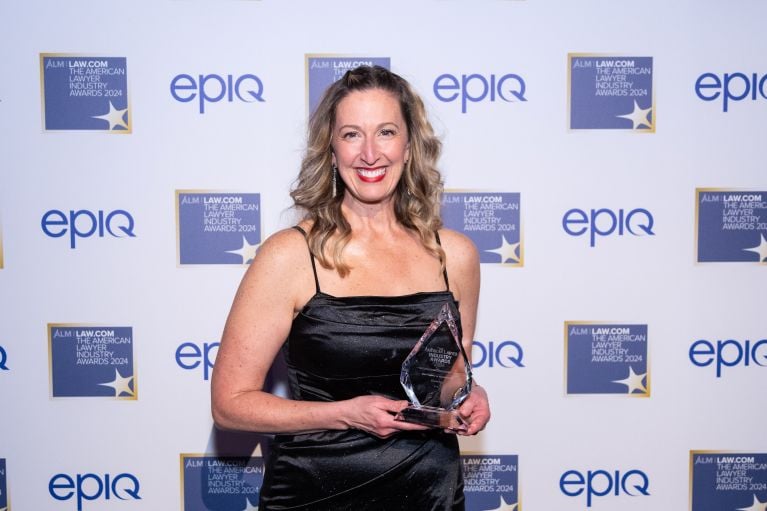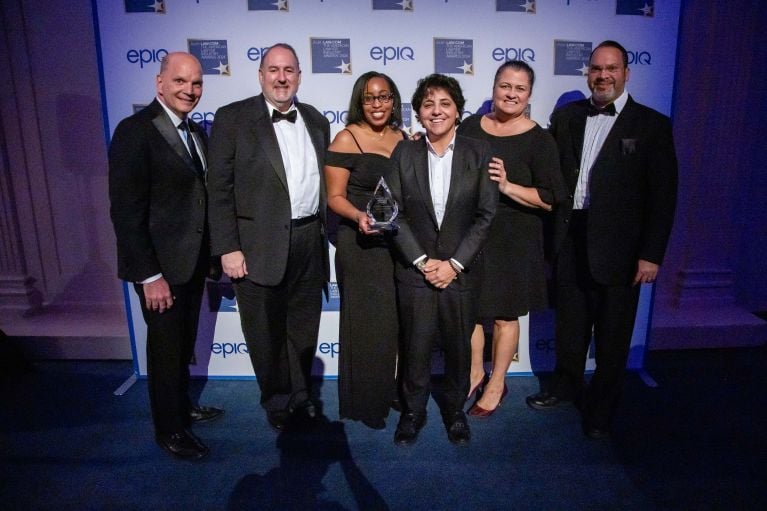 Photo: Shutterstock
Photo: ShutterstockHow In-House Leaders Build Close Relationships With Foreign Lawyers
Working with outside counsel in far-flung regions of the world can be daunting. But experienced corporate counsel say that frequent communication is the bedrock of a trusting relationship. Hopping on a plane to visit those foreign legal advisers in person on their home turf also pays dividends.
March 27, 2019 at 05:48 PM
7 minute read
For in-house counsel at global companies, developing solid relationships with outside lawyers in foreign jurisdictions is a critical and often challenging facet of the job that requires networking savvy, cultural sensitivity and first-rate communication skills.
Legal department leaders say they typically rely on recommendations from colleagues or turn to law firms that are already on their radars when they're on the hunt for foreign outside counsel. But it's also wise to leave the office and look beyond the known quantities.
 Mike Henning, assistant GC at United Airlines.
Mike Henning, assistant GC at United Airlines.
Mike Henning, a Houston-based assistant general counsel of United Airlines, recently attended a symposium for the International Air Transport Association in Rome, where he met with lawyers from all over the world who work with the airline industry.
“That is an excellent way to meet in-person with people who practice in different jurisdictions,” Henning said of attending trade conferences.
“In my opinion, networking is the key. One can never do too much networking,” said Francisco Hernandez, vice president and global general counsel of Mexichem, one of Latin America's largest chemical and petrochemical companies.
Be both proactive and strategic when connecting with foreign lawyers, Hernandez added. Rather than trying to build relationships with outside counsel in every country, he said it's better to be “able to predict trends and risks that will help map out those key jurisdictions you need to tackle first.”
|Difficulties in Different Jurisdictions
Some of those key jurisdictions might have rampant corruption or a weak rule of law, which amplifies the need for legal departments to thoroughly vet the firms and outside lawyers they hire.
 Francisco Hernandez-Castillo, corporate VP and GC at Mexichem
Francisco Hernandez-Castillo, corporate VP and GC at Mexichem
“Not only do you need to find the right expertise, but you also need to make sure you have the right partner in terms of compliance and ethics,” Hernandez said. “The last thing you need when dealing with a difficult situation in a difficult jurisdiction is to end up involved in a major compliance violation because you relied on the wrong local counsel.”
The key to finding the right partner is “having firsthand knowledge and impressions by your team on local counsel,” Hernandez added. “Trust your judgment.”
In other countries, lawyers demanding astronomical rates present a different set of challenges to in-house counsel. Kim Brown, global chief legal officer for Sedgwick Claims Management Services Ltd. in Memphis and SuperConference speaker, said she's been grappling with sticker shock in Singapore, a market that Sedgwick has targeted for long-term growth.
“I cannot seem to get around a high bill in Singapore,” she said. “Everybody else I can usually get down to a flat fee, but I can't get off the very high hourly rates there.”
Having feet on the ground in a certain locale can sometimes help a company negotiate lower rates, according to Henning: “The fees in Asia are somewhat high and higher than what we in the U.S. typically pay for counsel fees. But it's important to get out there and meet in person with counsel.”
Christoph Feddersen, vice president and general counsel of Cedar Rapids, Iowa-based Collins Aerospace, which has a five-lawyer legal department in Singapore, also suggested that having a presence provides leverage during fee negotiations.
“We know how to talk to law firms and make sure that they charge us reasonable rates,” he said.
|A Little TLC Goes a Long Way
After finding and hiring outside counsel, communication is essential to building trust and maintaining a successful relationship—that's especially true when the in-house team and outside law firm are in different countries.
“What legal departments sometimes don't understand is that you need to make sure that you give extra attention” to foreign outside counsel, Feddersen said. “You need to make sure those firms get exactly the TLC that it takes to really be an effective lawyer on your side.”
This content has been archived. It is available through our partners, LexisNexis® and Bloomberg Law.
To view this content, please continue to their sites.
Not a Lexis Subscriber?
Subscribe Now
Not a Bloomberg Law Subscriber?
Subscribe Now
NOT FOR REPRINT
© 2024 ALM Global, LLC, All Rights Reserved. Request academic re-use from www.copyright.com. All other uses, submit a request to [email protected]. For more information visit Asset & Logo Licensing.
You Might Like
View All
Digging Deep to Mitigate Risk in Lithium Mine Venture Wins GM Legal Department of the Year Award
5 minute read
Elaine Darr Brings Transformation and Value to DHL's Business

PepsiCo's Legal Team Champions Diversity, Wellness, and Mentorship to Shape a Thriving Corporate Culture
Trending Stories
Who Got The Work
Michael G. Bongiorno, Andrew Scott Dulberg and Elizabeth E. Driscoll from Wilmer Cutler Pickering Hale and Dorr have stepped in to represent Symbotic Inc., an A.I.-enabled technology platform that focuses on increasing supply chain efficiency, and other defendants in a pending shareholder derivative lawsuit. The case, filed Oct. 2 in Massachusetts District Court by the Brown Law Firm on behalf of Stephen Austen, accuses certain officers and directors of misleading investors in regard to Symbotic's potential for margin growth by failing to disclose that the company was not equipped to timely deploy its systems or manage expenses through project delays. The case, assigned to U.S. District Judge Nathaniel M. Gorton, is 1:24-cv-12522, Austen v. Cohen et al.
Who Got The Work
Edmund Polubinski and Marie Killmond of Davis Polk & Wardwell have entered appearances for data platform software development company MongoDB and other defendants in a pending shareholder derivative lawsuit. The action, filed Oct. 7 in New York Southern District Court by the Brown Law Firm, accuses the company's directors and/or officers of falsely expressing confidence in the company’s restructuring of its sales incentive plan and downplaying the severity of decreases in its upfront commitments. The case is 1:24-cv-07594, Roy v. Ittycheria et al.
Who Got The Work
Amy O. Bruchs and Kurt F. Ellison of Michael Best & Friedrich have entered appearances for Epic Systems Corp. in a pending employment discrimination lawsuit. The suit was filed Sept. 7 in Wisconsin Western District Court by Levine Eisberner LLC and Siri & Glimstad on behalf of a project manager who claims that he was wrongfully terminated after applying for a religious exemption to the defendant's COVID-19 vaccine mandate. The case, assigned to U.S. Magistrate Judge Anita Marie Boor, is 3:24-cv-00630, Secker, Nathan v. Epic Systems Corporation.
Who Got The Work
David X. Sullivan, Thomas J. Finn and Gregory A. Hall from McCarter & English have entered appearances for Sunrun Installation Services in a pending civil rights lawsuit. The complaint was filed Sept. 4 in Connecticut District Court by attorney Robert M. Berke on behalf of former employee George Edward Steins, who was arrested and charged with employing an unregistered home improvement salesperson. The complaint alleges that had Sunrun informed the Connecticut Department of Consumer Protection that the plaintiff's employment had ended in 2017 and that he no longer held Sunrun's home improvement contractor license, he would not have been hit with charges, which were dismissed in May 2024. The case, assigned to U.S. District Judge Jeffrey A. Meyer, is 3:24-cv-01423, Steins v. Sunrun, Inc. et al.
Who Got The Work
Greenberg Traurig shareholder Joshua L. Raskin has entered an appearance for boohoo.com UK Ltd. in a pending patent infringement lawsuit. The suit, filed Sept. 3 in Texas Eastern District Court by Rozier Hardt McDonough on behalf of Alto Dynamics, asserts five patents related to an online shopping platform. The case, assigned to U.S. District Judge Rodney Gilstrap, is 2:24-cv-00719, Alto Dynamics, LLC v. boohoo.com UK Limited.
Featured Firms
Law Offices of Gary Martin Hays & Associates, P.C.
(470) 294-1674
Law Offices of Mark E. Salomone
(857) 444-6468
Smith & Hassler
(713) 739-1250







